Jakarta, MINA – United Nations agencies in the fields of education, science and culture (UNESCO) want Indonesia to become a model of “Learning to Live Together”. It is known as one of the pillars of UNESCO in education.
UNESCO expects that education in Indonesia can produce generations who have a role in the environment wherever they are, able to place themselves according to their roles. In essence, it understands the role of themselves and others in socializing.
It was stated by Dr. Shahbaz Khan, Director of the UNESCO Cluster Office in Jakarta and Regional Bureau for Science in Asia and the Pacific during a speech at Training Workshop for elementary and junior high school teachers related to “Learning To Live Together”.
“Indonesia is an important country as a model of the UN’s sustainable development goals, with “Learning To Live Together”, Indonesia will be an example of other countries, with a harmonious modern life, diversity of religions, cultures and economic developments,” said Dr. Shabaz during Press Conference at Veranda Hotel, Jakarta, Monday July 29.
Also Read: Kashmir University Holds Urdu Literature Seminar
WorkshopsTraining Learning to Live Together was organized by the Indonesian National Commission for UNESCO (KNIU) of the Indonesian Ministry of Education (Kemendikbud) in collaboration with Arigatou International on 28 July-1 August 2019 in Jakarta.
The workshop was attended by teachers from 30 selected elementary and junior high school representatives who aimed to provide training for teachers on how to teach character education to live side by side with the spirit of peace and mutual cooperation to their students.
According to Dr. Praptono, Director of Basic Education Teacher Development, Director General of GTK, Ministry of Education and Culture, there are five important values when instilling character education for students, namely religious values, nationalism, independence, mutual cooperation, and integrity.
“For teachers, this is a place for improvement, sorry, there are still many teachers who need to be done to make it better, as well as for our students,” said Dr. Praptono in his remarks.
Also Read: 76 Foreign Professors Collaborate Indonesia at WCP 2021
Meanwhile, Prof. Arief Rachman, Executive Chairman of the Indonesian National Commission for UNESCO Ministry of Education and Culture said that the workshop was a very important process, not only providing academic lessons to students but also teaching how to learn to live together.
“Even though schools have a curriculum that is a reference for success, living together must not be forgotten by the teachers,” said Prof. Arief.
According to him, the purpose of education is not only for academic purposes but also creates an atmosphere to develop five potentials, namely spiritual, emotional, intelligence, physical potential, social excellence.
For this reason, he continued that Arigatao International constantly reminded Indonesian education about the importance of learning to live together.
Also Read: Ruins of 12th Century Madrasa Found in Turkey
Arigatou International is a global NGO that brings together people from various cultural and religious backgrounds to build a better world for children. (L/Sj/P2)
Mi’raj News Agency (MINA)
Also Read: Muhammadiyah College Launches Scholarships for Palestinian Students








![Israeli tanks and APC’s gather by the Israeli – Lebanese border. Amid Israel’s escalating campaign against Hezbollah in Lebanon on September 30, 2024. [Erik Marmor/Getty Images]](https://en.minanews.net/wp-content/uploads/2024/10/IMG_20241001_203226-300x197.jpg)




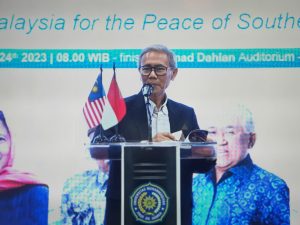
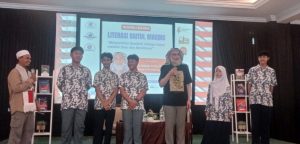
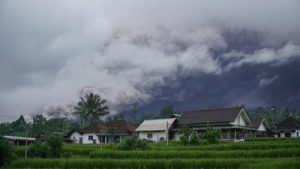

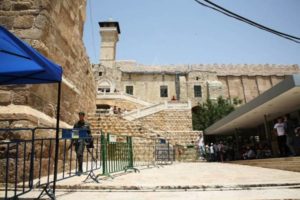
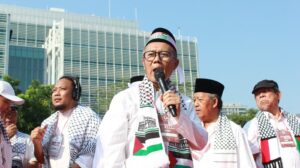
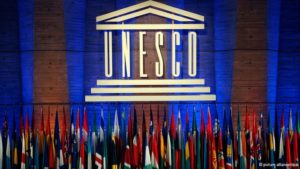














 Mina Indonesia
Mina Indonesia Mina Arabic
Mina Arabic